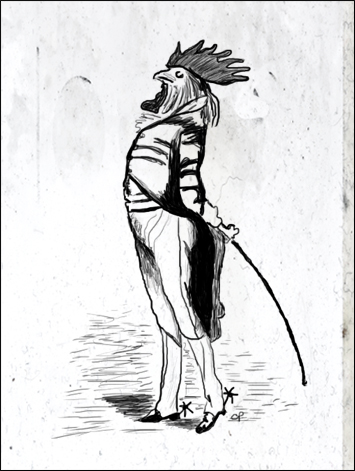I’m in the middle of mid-terms so I thought I’d share this special piece that I posted on Facebook a few years ago. Besides, Ender’s Game opens tonight.
Enjoy.
Fairy tales tell us a lot about the important things in our lives. They carry lessons about morality and behavior that defy the era for which they were intended. The story of a famous puppet named Pinocchio was such a masterpiece of observation and instruction.
Pinocchio was a special person. Pinocchio was taken from the forest and carved of pine by a talented artist. He was imbued with magic that brought him to life, making him unlike anything that had ever existed. Unlike other children, he couldn’t lie and probably couldn’t die, either. It’s difficult to imagine what kind of adult he might have been, what impact this unusual character might have had on the world.
Despite everything that made him unique, all he wanted was to be a real boy; a normal boy. When the story comes to its exciting end, Pinocchio finally succeeds. He is finally a normal boy, just like everyone else.
 Animals also tell us a lot about ourselves. Chickens are simple and notoriously unintelligent animals. They are also fiercely socially structured. Chickens in a group prefer all of the other chickens in that group to look and act just the same. They must have the same pattern of spots, must be the same height and must react to the same stimuli in the same manner. Any variation, a single dark circle in the feathers for example, will elicit a violent response. This begins with little pecks from other birds to remove the spot. The spot does not disappear, but the owner does attempt to flee the pecking. This elicits an even greater response from fellow chickens who will continue to peck until the spot has disappeared… or the chicken is dead.
Animals also tell us a lot about ourselves. Chickens are simple and notoriously unintelligent animals. They are also fiercely socially structured. Chickens in a group prefer all of the other chickens in that group to look and act just the same. They must have the same pattern of spots, must be the same height and must react to the same stimuli in the same manner. Any variation, a single dark circle in the feathers for example, will elicit a violent response. This begins with little pecks from other birds to remove the spot. The spot does not disappear, but the owner does attempt to flee the pecking. This elicits an even greater response from fellow chickens who will continue to peck until the spot has disappeared… or the chicken is dead.
Indeed, none will react to danger until one has initiated flight in some open direction. Then the others will follow swiftly, struggling to be the second in line, uncertain where they are going, but certain that the person in front knows.
There is a lesson in the stories of Pinocchio and the Second Chicken.
Pinocchio abandoned the world of the extraordinary and embraced the world of the exceptionally ordinary. The chicken with the strange spot was killed for not tearing her spot from her flesh herself.
 The Ugly Duckling, like Pinocchio and the Second Chicken, was not like the others that surrounded him. He grew up around ducks. He worked very hard not to stand out. Even though things were confusing, he became expert at pretending their ways. He would never pass for a duck, but at least he could talk to them; live among them.
The Ugly Duckling, like Pinocchio and the Second Chicken, was not like the others that surrounded him. He grew up around ducks. He worked very hard not to stand out. Even though things were confusing, he became expert at pretending their ways. He would never pass for a duck, but at least he could talk to them; live among them.
When he grew up he discovered that he was a swan. The relief that what he was could be positive was overwhelming. It was such a beautiful moment, in fact, that the story ends there.
But where the story ends, life goes on. The ugly duckling, now a swan, had only ever spoken duck. All of his behaviors, his experiences, his ways of interacting were duck. Because he didn’t speak swan, he wasn’t welcome into their world either. He was trapped between worlds with no home and still very alone.
Be well and take care of each other,
-CG
